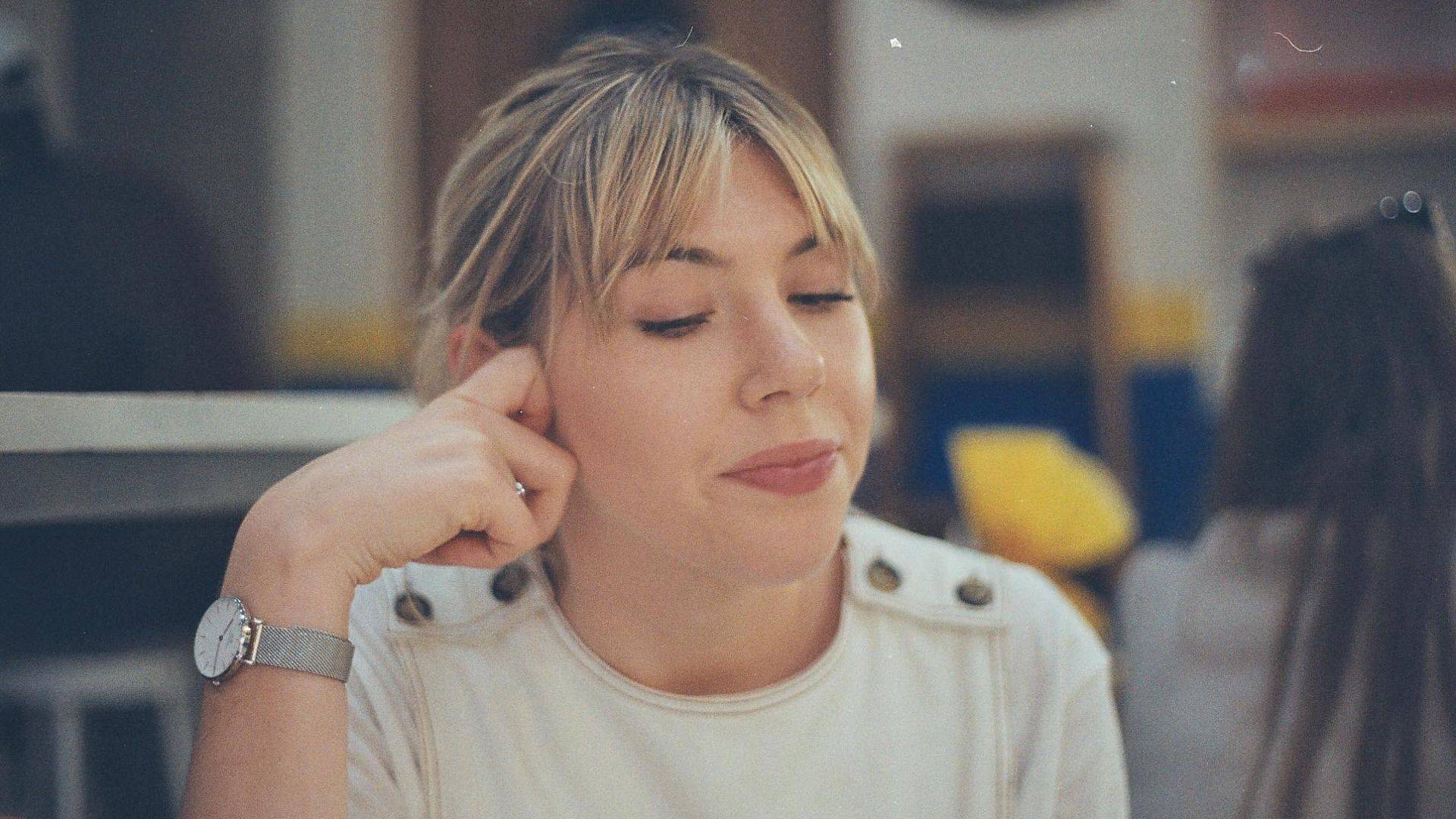Four Thoughts On Triple J's Hottest 100 Of 2020: Melancholia, Repetition, Omission and Acceptance

Music might have been 2020's only true consolation, but it was often older music doing the comforting. New music had a bolder role – to shock us, and provide a semblance of that forgotten thrill of "the new" while stuck inside without stimulation. That gave a strange context to triple j's Hottest 100 countdown this year – what was "hot" in a year without festivals, clubs or gigs? The answer matched the peculiar times; the top two were Glass Animals and Spacey Jane's achy and melancholic odes to broken and lost love.
Here are my four biggest takes on this year's Hottest 100.
Triple J Reflects Its Own Programming Back At Itself
An uncanny feeling of déjà vu pervaded the countdown over the weekend, for numerous reasons. There were a numbing amount of repeat entries by artists, three back-to-back appearances and two artists notching seven consecutive years in the ranks. Flume's practically-guaranteed appearance in the upper echelons of the Hottest 100 – his continued success now a running joke – came right on cue with the woozy rave of "The Difference" featuring Toro y Moi at number four. Hilltop Hoods' surprise number nine with "I'm Good?" saw them equal the Foo Fighters and Powderfinger for the most entries of all time, with 22 over the years. More egregious to jaded online commentators was jaunty Northern Beaches duo Lime Cordiale's five tracks, mostly appearing the top end of the countdown.
What this phenomenon of repetition might mean became a little clearer when I saw up-and-coming Novocastrians Bugs' Like A Version cover of Mallrat's "Charlie" come in at #91 – The Hottest 100 and triple j reflect the radio station to itself. An emerging artist, after grinding in the wilderness for years, gets validation by the station finally by covering a triple j favourite for a triple j program.
We forget, because of triple j's cultural ubiquity, that it really is just one radio station with a particular taste and sensibility. Every music outlet (even this one) is self-referential to promote itself – it's just that the Hottest 100 is spoken about as if it is a poll with national authority beyond triple j. Lime Cordiale was the third most played artist on the station in 2020 – their saturation in the countdown makes absolute sense. This also suggests critics overestimate the number of non-listeners that vote.
Embarrassing Omissions And A Pale, Male Taste
The classic retort to any complaint about the Hottest 100 every year is the accusation that you're old, or out of touch – if you're not in ye olde 18-24 demographic, you're a dusty has-been! But, as writer and journalist Osman Faruqi articulated on Twitter, that doesn't quite make sense when the criticism relates to stark errors of diversity.
The idea that the triple j audience is overtly progressive or aligned with "cancel culture" crumbled in the face of two inclusions in the top 50 – Ziggy Alberts, a known anti-vaxxer, and Smith Street Band, whose vocalist Will Wagner was accused of emotional abuse by ex-girlfriend Georgia McDonald of Camp Cope.
Instead, Tkay Maidza – who broke barriers for the reach of Australian hip-hop overseas with her blockbuster EP Last Year Was Weird Volume 2. – was omitted entirely. Singles from Cub Sport's near-universally acclaimed Like Nirvana were also ignored, and didn't even receive justice in the conciliatory Hottest 200. International heavyweights Phoebe Bridgers and Rina Sawayama – who in almost every other media space are borderline shoo-ins – were also nowhere to be seen.
A press release from the station proudly proclaimed the 2020 countdown had the most ever entries from Indigenous artists – six tracks from Thelma Plum, Sycco, Birdz, Beddy Rays and two by The Kid LAROI. It felt like an empty brag, as the Hottest 100 continues to lack real representation of people of colour and women.
Glass Animals' Crown Could Be Another Case Of "The Wombats Syndrome"
Glass Animals became the first UK band to top the Hottest 100 countdown since Mumford And Sons in 2009, with the vapoury, boom bap of "Heat Waves". The track is an idiosyncratic winner – more melancholic than almost any number one since Augie March's "One Crowded Hour" (2006) – and edged its way to victory off the back of the bizarre virality of a romantic fan-fiction about two Minecraft YouTube streamers. It's a success story that could only have bloomed while the world was in isolation – "Heat Waves" is certainly no festival banger.
But the popularity of Glass Animals on the station and in Australia more broadly has the makings of a stranger phenomenon I'd like to coin "The Wombats Syndrome". Gloriously inoffensive UK pop rock trio The Wombats are more popular Down Under than they are anywhere else – even their home country. Four of the five cities which house the most of their listeners on Spotify are in Australia. In 2018, their continued appearances on seemingly every music festival line-up in the country prompted a flurry of articles attempting to understand why, to no end. Now, Glass Animals' top three cities of listeners are Sydney, Brisbane and Melbourne; singer Dave Bayley says Australia was the first country to sell out the band's shows.
The connection between the two, and what I'd hedge to be the reason for their popularity, is their simple, millennial storytelling couched in trendy pop arrangements. Both Glass Animals and The Wombats, perhaps in part by virtue of their Englishness, are very clear writers and singers – there is no mistaking what they sing about, and why they sing it. It gives listeners a clear, unpretentious narrative quirked up by their fondness for name dropping cultural products of the '90s. Australians and their distrust of showy intellect enjoy these young, dorky-but-not-too-dorky dudes fumbling their way through love in a way they can sing along to. Once the borders come down, I think it will be a long time before Glass Animals disappear from Aussie festival line-ups.
... But We Accept The Hottest 100 Is No Longer The Ultimate Metric For Success
This year's countdown, for all of its faults, also showed the Hottest 100 is no longer (if it ever was) the ultimate metric for musical success in Australia. If it doesn't reflect a slowly diversifying industry, it's because it isn't a mirror – it's a popularity contest within one institution. The fact that the Hottest 100 took place on Invasion Day for years, and the government's uproar when the date was changed, helped uphold the idea that the countdown was Australian musical gospel; that, it was tethered to (a false) national identity, and really spoke to the best Australian songs of the year.
But now, we know it's not – we know Tkay Maidza deserved to be there, it is strange that Lime Cordiale had five songs in the countdown, and Hilltop Hoods' 22 songs over the years doesn't make popular sense. We can still want the Hottest 100 to be better, but perhaps now it's best to enjoy it at a distance.
Written by Josh Martin, a Melbourne-based freelance music and media writer with words in MTV Australia, NME, Junkee, Crikey, etc. Follow him on Twitter @joshmartjourn.
Note: Article featured in MTV's newsletter, with Spacey Jane image; credit to Daniel Hildebrand.
More good stuff:





